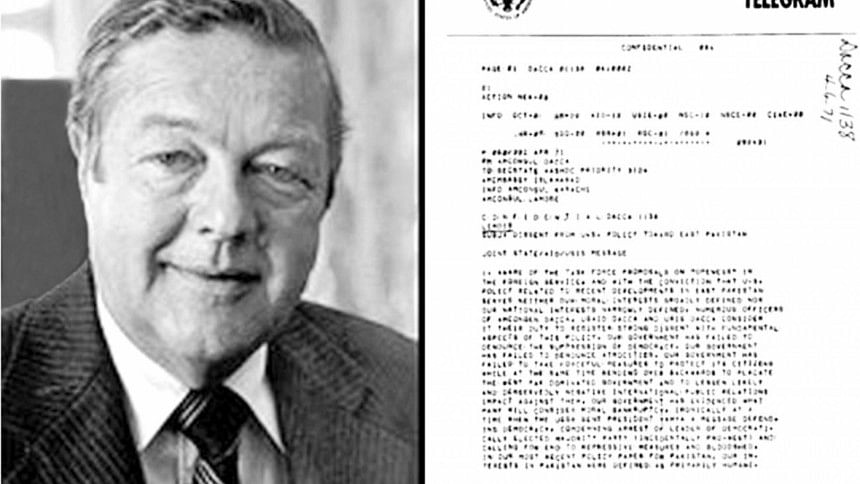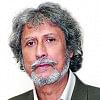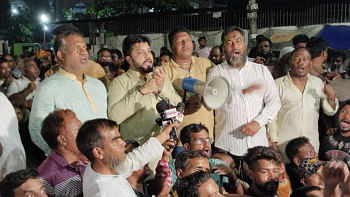Archer Blood - An American's sacrifice for Bangladesh

Soon after the creation of Bangladesh, we came to know of the heroic yet risky stand taken by many foreigners, foreign journalists and Christian missionaries in defiance of the Pakistani military threats. They wholeheartedly supported the Bengali people in their fight for freedom from the occupying forces and extended all possible help to the people and the freedom fighters who needed shelter, food and medicine. In their heart and soul they loved Bangladesh, hence, they had genuine reasons for supporting the people's war of independence. Some of the missionaries have been living here since the 1950s and came to consider this land their home. But, what about an American diplomat who had no previous interaction with the Bengali people or had the opportunity to know them well enough to go beyond a formal hello? Would such a man, a distinguished gentleman from the Washington's elite pool of career diplomats risk everything — his next posting as an American Ambassador in a distant land — for the love of Bengalis? Would he sacrifice all that he looked forward to during the training period for the people he hardly knew well? The likely answer would be No.
But, Mr. Archer Blood, the then Consul General at the American Consulate in Dhaka, did exactly that and ruined his career as a diplomat. He never got that dream posting as an Ambassador ever. He worked in the State Department at a desk until he retired in due course. Let us remember him in this month of December — the month that gave us the much cherished victory over our enemy.
The Bangladeshi media came to know about his role in 1971 soon after the liberation of the country and published small reports on him. Some of our own diplomats had come to know about him and let the media know about his pro-Bangladesh activities as the head of the Dhaka consulate. But much later, about three or four years ago, we came to know in details about the heroic, yet risky stand, that was taken by Archer Blood and his staff members of the consulate from the book titled Blood Telegram authored by Gary J. Bass. Reading through the pages of Blood Telegram was like watching a flashback of the events of 1971 on a big screen, like a feature film. In fact, it was like reliving those fearful days when the line separating life and death had thinned down perilously for the people of East Pakistan.
The book chronicled the political developments in Dhaka, Rawalpindi, Delhi and Washington, simultaneously during the decisive moments of the history of making of a nation state - Bangladesh. Blood Telegram contains authentic accounts of classified telegrams between Dhaka, Rawalpindi and Washington, including responses, high level meetings, conversations, notes, comments, tussle between White House and the State Department, role of Henry Kissinger and the imperceptive diplomacy of president Nixon and much more, all on the basis of recently declassified documents by the State Department, White House tapes and praiseworthy investigative reporting by some very courageous correspondents of the time.
Well before March 25, Consul General Archer Blood could clearly see through the US policy towards Pakistan on the question of the independence of East Pakistan as a sovereign state. He did not support further shipment of arms to Pakistani military that was mostly used on the Bengali population. He requested the State Department to go for a political solution of crises in East Pakistan as the only way out. He reported on the brutal crackdown on the unarmed civilians by the Pakistani military forces on the night of March 25 with machine guns and tanks in the strongest of words. He knew to his own frustration that most of those heavy arms and ammunition came from the US. He collected reports on the civilian deaths, arson attacks, rape of women, looting, etc., through his own sources and started to send them via diplomatic channels in coded form to the State Department, bypassing the American Ambassador, Mr. Farland, who was sitting in Rawalpindi. Despite warning of unpleasant consequences by the Ambassador, he remained steadfast in his position against overwhelming odds and sent telegram after telegram to Washington, regarding the genocide being perpetrated in East Pakistan by the West Pakistani military. His telegrams had initially worked at various levels of the then US administration and political circles to help gain an insight into the situation in East Pakistan despite Pakistani propaganda. But, President Nixon and Henry Kissinger were angered by Blood's defiance and instructed the State Department to call him back to Washington.
About Archer Blood, author Gary Bass writes in the preface: "Archer Blood was a gentlemanly diplomat raised in Virginia, a WWII navy veteran in the upswing of a promising Foreign Service career after several tours overseas. He was earnest and precise, known to some of his more unruly subordinates at the US Consulate as a good, conventional man..." Appalled by the brutality and wanton killing of the unarmed Bengalis on March 25, 1971, and the following days , Blood and his colleagues at the Consulate decided to relay as much of this as possible to keep Washington updated. He wanted the US government to put pressure on the Pakistani government to stop the killings and send back the military to the barracks and go for political settlement. They continued to give details of the horrific slaughter of civilians in towns and villages. They mentioned the killings at Dhaka University, of students, teachers and general staff. One of Blood's cables used the term "Selective Genocide" and yet there was no response from his government. In Blood's words, his cables were met with "deafening silence."
Archer Blood and his wife were happy to learn of the creation of Bangladesh feeling that their sacrifice did not go in vain. Some freedom fighters of Dhaka stayed in touch with him as long as he lived. They had in fact invited Blood and his wife to Dhaka once to shower their love and respect on this front ranking freedom fighter of Bangladesh.
The writer is Editor, Special Supplements at The Daily Star.

 For all latest news, follow The Daily Star's Google News channel.
For all latest news, follow The Daily Star's Google News channel. 



Comments